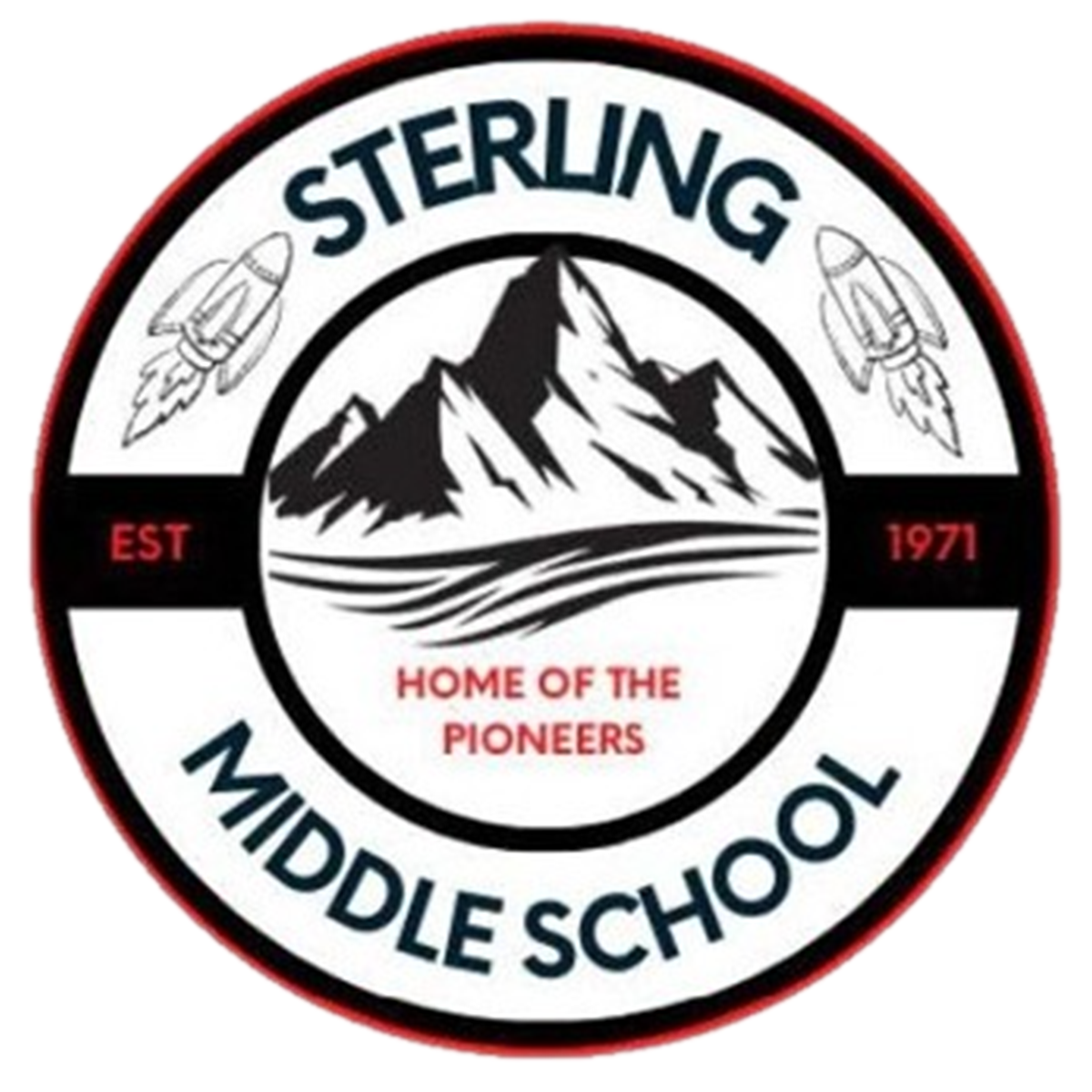STEM
Air and Space Science
Sterling Middle School Pioneers have many opportunities for hands-on experience with air and space science. We are fortunate to have support from the Udvar-Hazy Center of the Smithsonian National Air and Space Museum, STEM in 30, Collins Aerospace, Amateur Radio on the International Space Station (ARISS), Loudoun Amateur Radio Group, and Sterling Park Amateur Radio Club.
International Space Station Live Contact - February 9, 2021
Sterling Middle School students will have an opportunity to communicate live with astronauts on the International Space Station this school year. Our school was one of five accepted from across the country for a Spring 2021 live contact event. The event is supported by the Amateur Radio on the International Space Station organization (ARISS) and will be facilitated by licensed local amateur radio operators from Loudoun Amateur Radio Group and Sterling Park Amateur Radio Club. Students from Sterling MS, Guilford Elementary, and Sterling Elementary will participate.
The staff and students are embedding space science through cross-curricular instruction with support from the Udvar-Hazy Center of the Smithsonian National Air and Space Museum. Through project-based learning, students will study astronomy, space exploration and the Space Race, effects of space travel on humans, living in space, growing plants in space, radio waves and communications, and create satellite telemetry receivers. They will also have opportunities to virtually meet space and communications experts.
Computer Science
Sterling Middle School is proud to be designated a Code VA Computer-Science Ready School. Computational Thinking and computer science opportunities are being introduced throughout the curriculum. We are grateful for the support of Computer Science for LCPS, the Amazon Future Engineer program, and Code VA.
Computer Science Week
Computer Science Education Week (CS Ed Week) is an annual national celebration of learning about computer science at all grade levels. The first CSEdWeek was launched by the Association for Computing Machinery on December 6–12, 2009. The intent is CS Ed Week will be celebrated each year during the week of Grace Hopper’s birthday (December 9, 1906), who invented the first compiler and coined the term “bug” (an error in a program) after removing an actual moth from a computer in 1947. You can learn more about Grace Hopper, PhD at the Yale University website.
In LCPS , we believe that every student should have the opportunity to learn computer science. It helps nurture problem-solving skills, logic and creativity. By starting early, students will have a foundation for success in any 21st-century career path. Students at Sterling Middle School have opportunities to learn about computer science through computer science elective courses, Level Up, math, science, social studies, tech ed, and CS Ed Week. Each year, we participate in Hour of Code, a project that started as a one-hour introduction to computer science, designed to demystify "code", to show that anybody can learn the basics, and to broaden participation in the field of computer science. It has since become a worldwide effort to celebrate computer science, starting with 1-hour coding activities but expanding to all sorts of community efforts.
Computational Thinking
Computational Thinking (CT) is a problem solving process that includes a number of characteristics and dispositions. CT is essential to the development of computer applications, but it can also be used to support problem solving across all disciplines, including the humanities, math, and science. Students who learn CT across the curriculum can begin to see a relationship between academic subjects, as well as between life inside and outside of the classroom.
